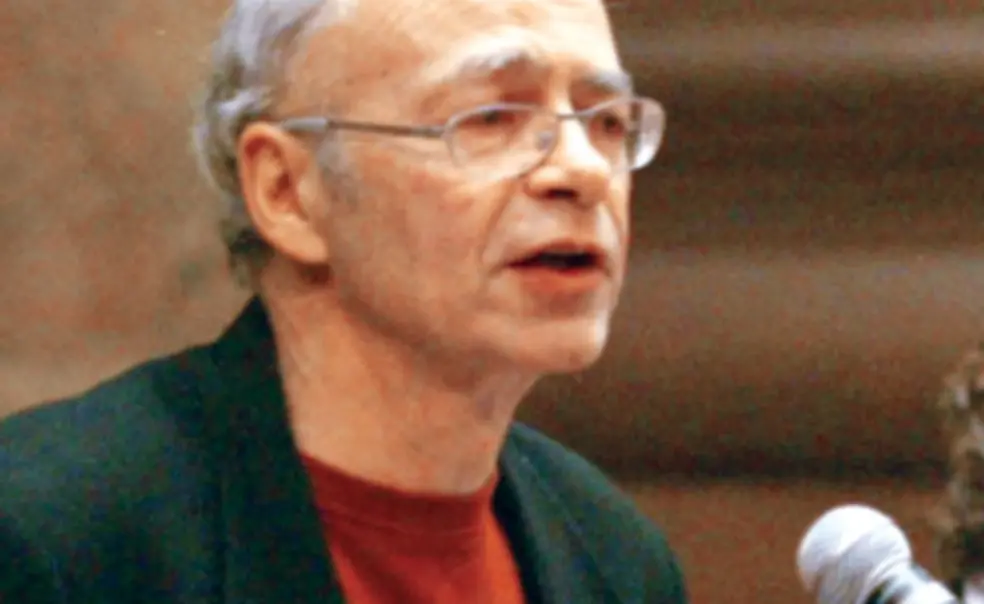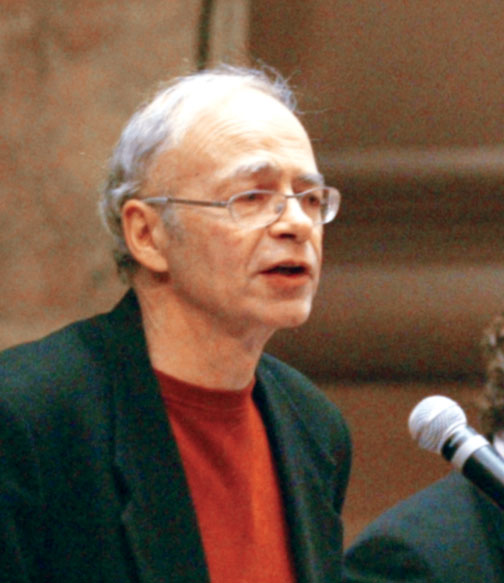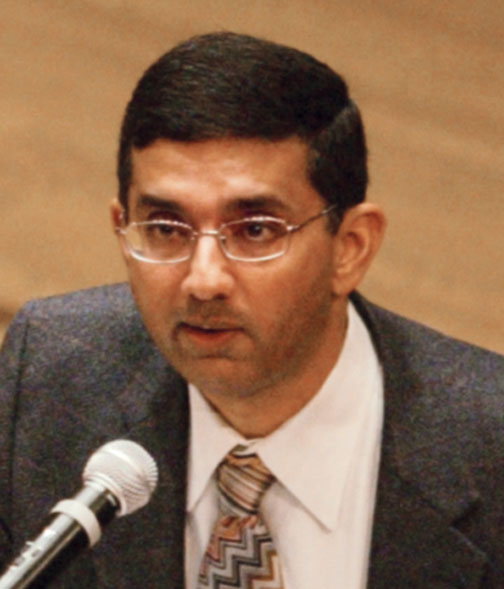Singer, D'Souza face off over religion and morality
Can there be morality without God?
That was the question posed in a debate Dec. 3 between Princeton professor and bioethicist Peter Singer and conservative writer and speaker Dinesh D’Souza.
Not surprisingly, the event, sponsored by the Christian Union and the Fixed Point Foundation, filled Richardson Auditorium. Singer’s philosophy of utilitarian ethics has attracted attention and controversy, particularly regarding his sympathetic viewpoints toward animal liberation, abortion, euthanasia of severely disabled infants, and redistribution of wealth.
D’Souza is a best-selling author, Hoover Institution fellow, and onetime policy adviser in the Reagan administration. He is known for his conservative stances on affirmative action and social welfare, as for well as for his criticism of feminism.
The 2 1/2 -hour discussion was not as heated as some might have expected, however.
Singer stated that he would not discuss his personal views, but only would address the question posed in the title of the debate.
“The God of the Judeo-Christian tradition is supposed to be omniscient, omnipotent, and benevolent,” Singer began. He noted the presence of genocide, animal mistreatment, and natural disasters. “If you look at the world around us, I do not think that there is such a God in the world, because he would not permit these disasters to exist,” he said.
He went on to say that Christians ignore “inconvenient” passages of Scripture, and that atheists can behave just as morally as religious people. Therefore, Singer concluded, one cannot disprove the concept of a morality without God.
“Since Peter Singer is not one to discuss his views, I guess it’s going to be my task to discuss them,” responded D’Souza. He said that Singer’s efforts to establish the tenets of a secular morality miss “the deeper point that ... these values came into the West and in some cases into the world because of Christianity.”
D’Souza — who has spoken in support of the theory of intelligent design — argued that the development of moral instincts in human beings cannot be explained by evolution. Such instincts are absent in other animals, he said, suggesting that morality stems from the conscience, a “transcendental voice.”
D’Souza later took issue with one of the principles of Singer’s general philosophy: that nonhuman animals should be given the same moral consideration as human beings. D’Souza said Singer’s argument that humans and animals should be entitled to equal rights is undermined by the fact that humans have higher reasoning ability than non-humans.
“It’s not that we recognize each other as equally human, but as equally capable of suffering,” responded Singer. “The boundary of our species isn’t the boundary of our moral concern.”
While the audience appeared to be entertained by the debate, some students left disappointed.
“The arguments were fairly superficial, and the debaters seemed more eager to score points with the audience than to actually engage each other in a substantive way,” said Joel Alicea ’10.














1 Response
Brian Zack ’72
10 Years AgoA missed opportunity
Peter Singer and Dinesh D’Souza’s Dec. 3 debate on morality and religion was an extraordinary waste of an extraordinary opportunity (see coverage in Notebook, page 21).
Singer, a profound if controversial thinker (these are not mutually exclusive), approached the evening with seriousness. D’Souza, in contrast, seemed a parody of a public intellectual. Singer addressed the topic. D’Souza opted for a Palinesque approach, responding to the question he would like to answer rather than that which he was asked. This apparently was: Reduce Singer’s philosophy to misleading sound bites, achieving maximal emotional impact with minimal intellectual content, then ridicule them.
It is nonsense to state, as D’Souza did, that Singer advocates the killing of infants and the handicapped. (To engage Singer’s actual thought, one ought at least to read Practical Ethics.) D’Souza also drew the tired and dishonest comparison between Singer’s views and Nazism, particularly outrageous given the fact that three of Singer’s grandparents died in Nazi concentration camps.
D’Souza made the fantastic claim that all of human compassion derives from Christianity, then adduced the fact that “atheism has been responsible for mass murders” in support of morality’s dependence upon religion, neglecting the obvious rejoinder, and generally failed to mount a coherent argument. His central position was both circular and illogical: Insupportable premise — extant morality derives from religion. Invalid conclusion — no religion, no morality.
Unfortunately, the topic, “Can There Be Morality Without God?”, was singularly infelicitous. This is akin to asking, “Can there be breakfast without eggs?” Well, yes. Posing a question with a self-evident one-word answer does not motivate an enlightening debate.
Also unfortunately, Singer and D’Souza seem to be putting on a traveling salvation show (Google “Singer D’Souza”), presumably for more than the sheer intellectual joy of it. I can’t knock that, but I do wish Singer would find a worthier opponent, so that the audience might benefit as well as the debaters.